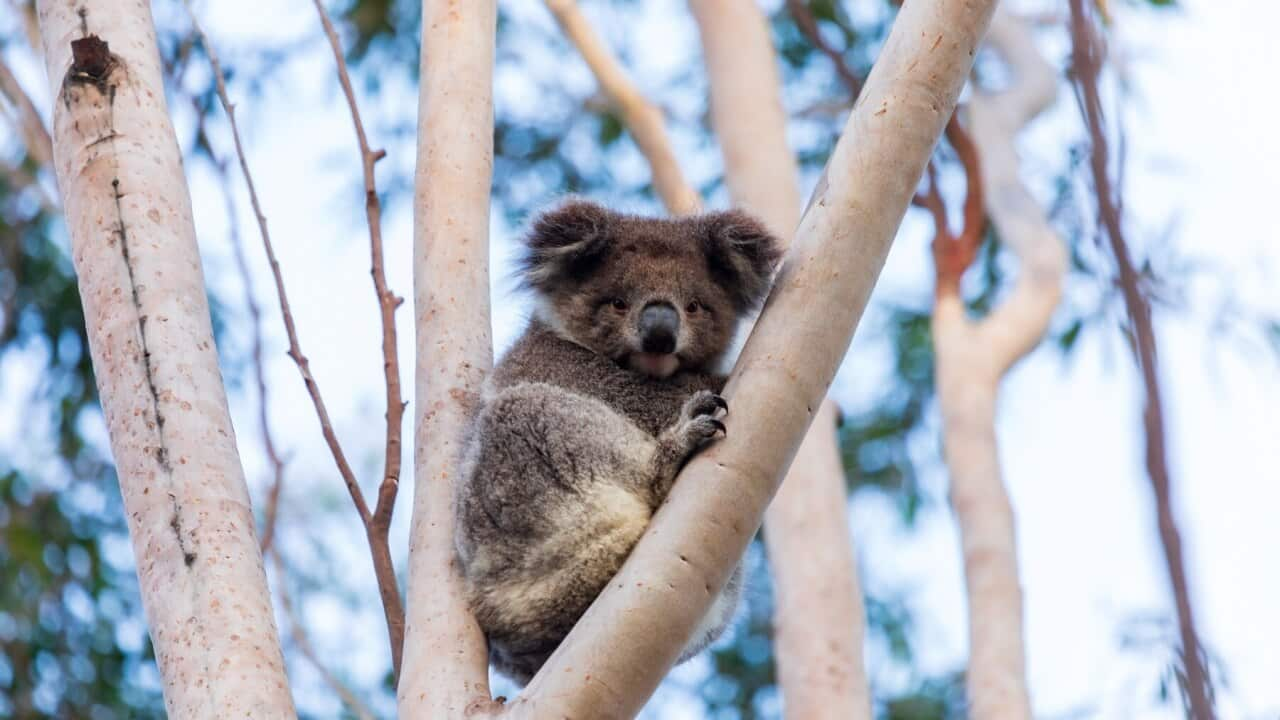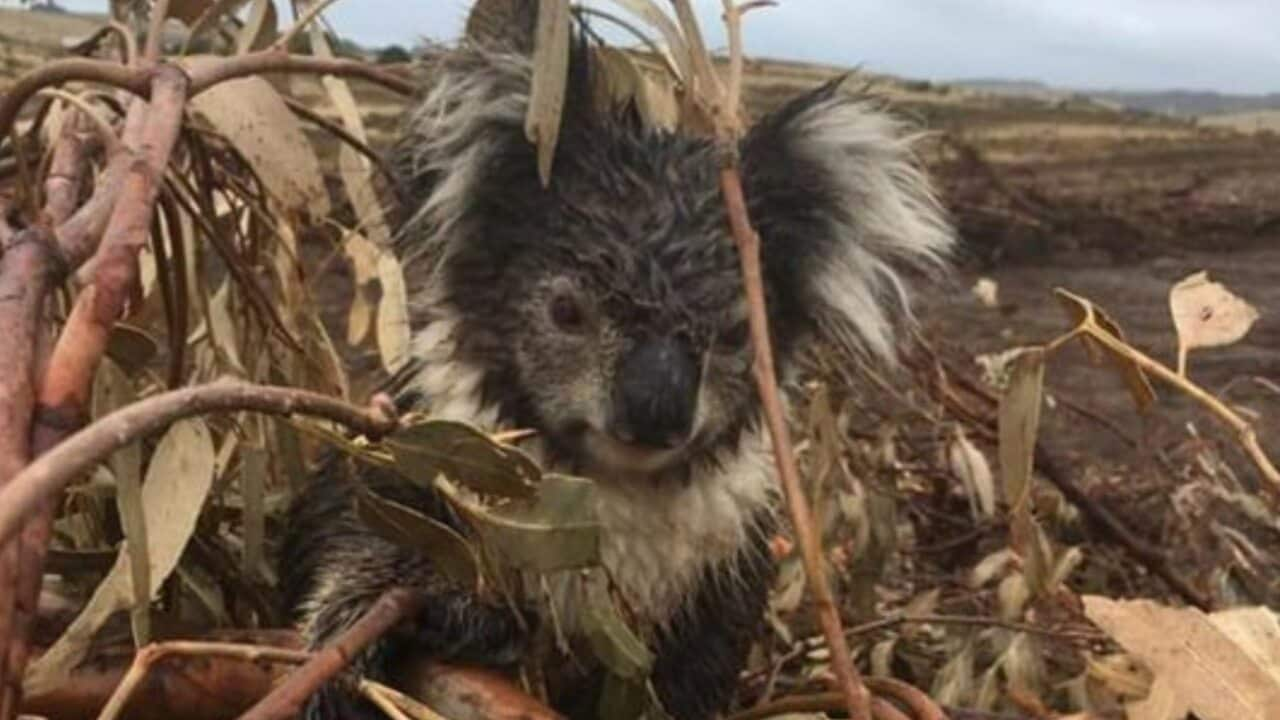After a year-long inquiry reported that koalas could be extinct in NSW by 2050, some experts have said this may not be the case.
The parliamentary report, released on Tuesday, said without urgent government intervention koalas would be extinct in NSW within 30 years.
University of Sydney associate professor Mathew Crowther said while there is no doubt koala populations are drastically declining, it's a 'big statement' to say they'll disappear from the state by 2050.
"I would say that as it is, you'll get localised extinctions, some populations will probably disappear for example around Gunnedah and the Liverpool Plains, I think that's looking really bad unless there's a chlamydia vaccine and we can deal with water out there," he said.
"Maybe some coastal areas if we don't deal with roadkill and habitat fragmentation."
"There'll be certainly big declines, but I think it's unlikely that they'll be extinct in NSW by 2050.
"There will be some populations hanging on." While Professor Crowther, who specialises in wildlife ecology and management, said an extinction within the next 30 years is unlikely, he said this does not mean we should not be concerned about declining koala populations.
While Professor Crowther, who specialises in wildlife ecology and management, said an extinction within the next 30 years is unlikely, he said this does not mean we should not be concerned about declining koala populations.

There are serious concerns about the management of koala populations in NSW. Source: AAP
He said there is potential for koalas to extinct if something is not done to protect them.
"We have to think that maybe populations are secure now or partly secure now, but when you have climate change interacting with things like fires, interacting with lack of water and maybe even interacting with things like disease, which is stressing the population, you've got to be careful," he said.
"You don't want to say that everything is okay because you'll be losing populations here and there or losing habitat here and there and any habitats suitable for the future might go.
"We've got to not only conserve what we've got, but we've got to plan for the future."
Habitat loss & climate change
The parliamentary report found habitat loss was the biggest threat to koalas in the state, and climate change was also a significant factor contributing to their decline.
"There must be a significant increase in koala habitat protected from logging, mining, land clearing and urban development," committee chair Cate Faehrmann said in a statement on Tuesday.
Professor Crowther agreed that both habitat loss and climate change were significant contributors to koala population decline, adding interaction with cars and dogs, as well as disease as major issues for koalas.
"If you don't have trees to eat, you don't have trees to take shelter in, and they do like the bigger, older trees at least to shelter in because they can get up high and shelter from the heat and those sorts of things," he said.
"That's often coupled with they're clearing them to put roads in and things like that. Road mortality in some areas is really high, and when they're down on the ground more, they're susceptible to dog attacks."
While further inland Professor Crowther said it's drought and disease that impact koala populations most.
"In Gunnedah, which is inland, heat is a real problem there, lack of water is a real problem, there's a drought, there's certainly been lack of water in a lot of areas, and that's seen a big decline.
"They basically sit in trees and die, but that's also been coupled with chlamydia, which has been seen in a few populations.
"It seems to have come into Gunnedah populations later than others, and it's having a devastating impact - up to 80 per cent have chlamydia."
The report put forward 42 recommendations to the NSW Government to protect the marsupial. It found the NSW Koala strategy to be ineffective in protecting koala populations.
Professor Crowther said there needs to be a focus on policy to protect habitats and deal with climate change if we are to maintain our koala populations in NSW.
"We've got to maintain old trees," he said.
"Planting trees is awesome, and it's a future thing, and they'll eat the young leaves, but it takes a long time for a tree to grow for a koala to sit in it.
"It's not a substitute; It's something you can keep going on at the same time. Encouraging trees to re-grow, fencing them off from stock, that is good, but maintaining old trees is essential.
"I think its also about policy, like don't clear things. Look at areas if you're going to put a lot of houses there, you're going to have more roads, more dogs, more fragmentation for koalas."


